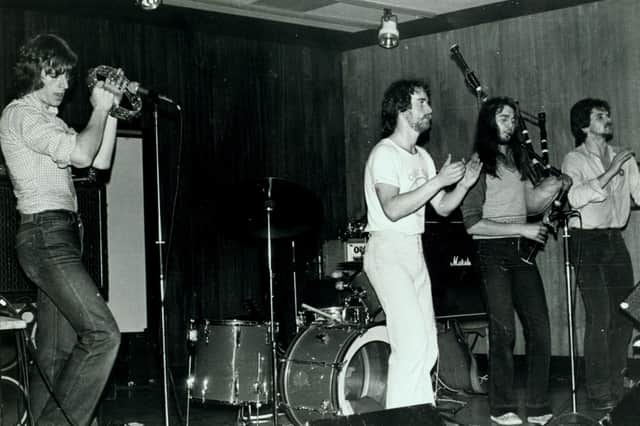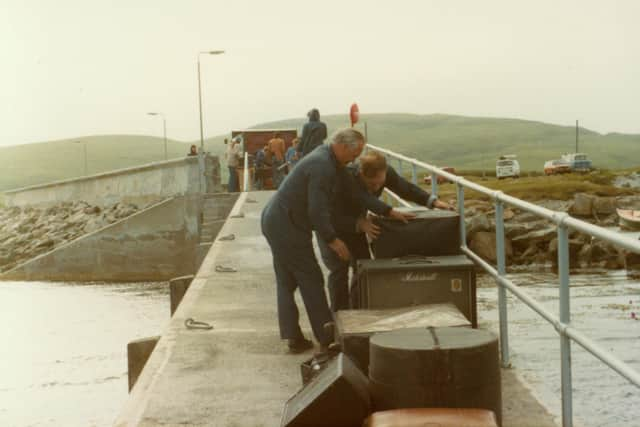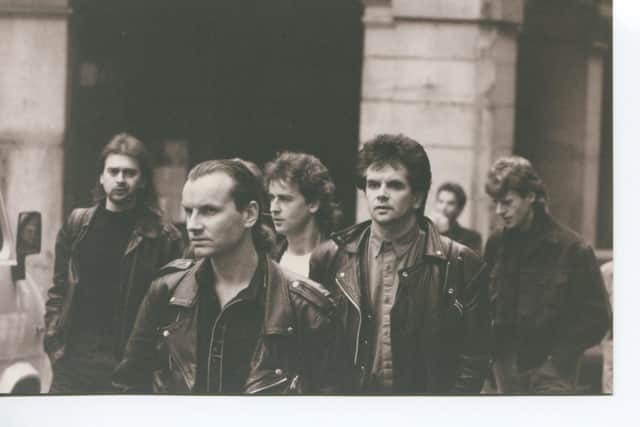The life and times of Runrig – in 90 minutes


The story of the band has been told in a DVD and coffee table book, “There Must Be A Place”, out this weekend. The project was blown off course by Covid-19 and if all had gone to plan, the film would have been in cinemas and on Netflix by now.
There were even hopes for a drive-in event at Loch Lomond, redolent of their concert that attracted 50,000 in 1991.
Advertisement
Hide AdAdvertisement
Hide AdMaybe some of it will still happen but for the moment, the priority is to give the Runrig faithful a beautifully-crafted trip down memory lane, made by the Glasgow-based production company, Blazing Griffin.


Runrig lasted for almost half a century. Over a long lunch with Rory and Calum Macdonald, we agreed that the ‘70s was a great decade to be alive and to be on Skye. There was radical journalism with plenty targets to hit. There were signs of an invigorated cultural awareness among a young, bright generation. And there was Runrig.
They first came together as an impromptu trio when the accordionist Blair Douglas’s formidable mum, Ina, needed a band at short notice for a North Uist and Berneray Association dance in Glasgow. She knew Rory MacDonald played guitar and his brother Calum was persuaded he could play the drums. Runrig was born.
Donnie Munro and Malcolm Jones joined the line-up. “The early stages were all about friendship and camaraderie,” says Rory. “We were living next door to each other in Portree and Blair was just in Braes. It was very localised and we were enjoying life without any great aspirations.”
For the first few years, Runrig was a dance band that kept the west coast village halls bouncing. That perception changed when in 1978 they made their first album, Play Gaelic , which signalled the band’s depth of commitment to the language since all the songs were written by Rory and Calum, in Gaelic.


The story behind that recording is one of the DVD’s classics. The character who ran Lismor Records, Peter Hamilton, is still recalling the unreasonableness of four guys from Skye who expected a week to make a record. The Lismor formula was to record one LP side in the morning, break for lunch, and get the second finished in the afternoon. Runrig was no exception.
Calum says: “When we got back to the Skye Gathering Hall after Play Gaelic, we just about got kicked out. They wanted to know why we were singing our own songs, for heaven’s sake, and why were they in Gaelic? What was the point of that? That was certainly the mood at the time but we were determined not to let it faze us”.
The doubters could not be blamed for their scepticism since Play Gaelic was entering unfamiliar territory. The music revolution of the ‘60s had passed the language by and there were few bridges between the traditional perception of Gaelic song and expectations of a young generation.
Advertisement
Hide AdAdvertisement
Hide AdHowever, a tough Friday night in Portree was not the whole story. By the following year, when the National Mod was held in Stornoway and Runrig’s presence was itself a notable innovation. Rory recalls a change mood: “We felt we had connected and that there was a real movement, if you like, of young people starting to embrace the heritage, their own history and the language”.
Shortly afterwards, Runrig played Eden Court in Inverness and packed it out. That was the moment when they realised they could be something more than a “localised” west coast band. The reception they generated confirmed to them that a career as professional musicians had become inescapable.
Playing to mass audiences inevitably meant greater emphasis on English but without ever compromising the loyalty to Gaelic or to the struggles of the Gael. The rest, as they say, is history.
As for the documentary film, Calum says: “It has been many years in the making, .Forty-five years is a big canvas to cover and from our Last Dance concerts in 2018, through to the challenges of the global pandemic, the Blazing Griffin team have worked resolutely to bring this film to a place of completion and excellence”.
Jack Cocker was director and came to the role as a non-fan of Runrig “even when they were in their pomp in the 1990s”. He says: “In a way, that made me a good candidate because I could make a story that would hook other non-fans into taking a look at what it was about.
“The more I got to know them and their music, the more I realised I had to re-think what Runrig was. It wasn’t just a band to go nuts to at the end of a wedding. There was so much more depth and thought than I had realised. In the course of it, I became a big fan”.
Donnie Munro says: “I think we have all realised with the benefit of hindsight that we were part of something bigger going on in the Highlands and Islands – that sense of a political and cultural identity reawakening. Without knowing it, we were part of it”.
One comments sticks in his mind. While they were making a Gaelic children’s series in Aberdeen, there were long sessions in the pub with the broadcaster, Martin MacDonald, talking about Highland history and politics. Martin was thrilled by the idea of four young guys from his native Portree singing original Gaelic songs about themes they all held dear.
Advertisement
Hide AdAdvertisement
Hide AdBut, asked Donnie, should they be more overtly political in what they were doing? Definitely not, said Martin. “You are political by the mere fact that you exist”. Runrig, for almost half a century, were great entertainers for the masses and even greater ambassadors for the history and language of their own people. Political by the mere fact they existed.